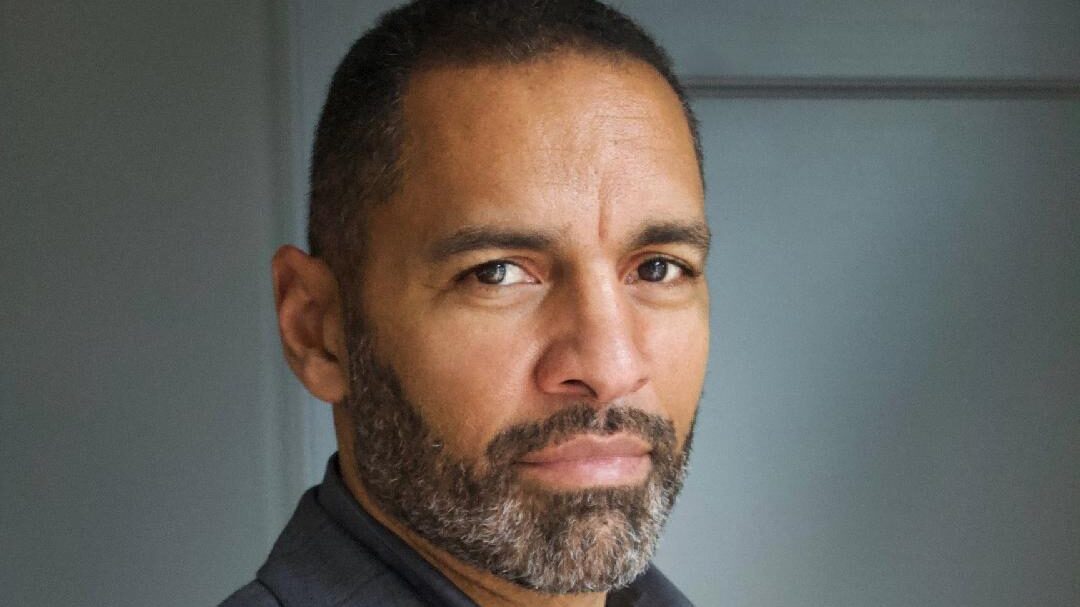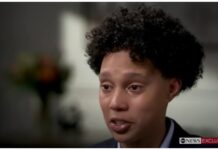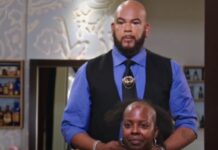*When opportunity knocks, actor Patrick Faucette plans on being fully prepared to open the door. Staying ready so he doesn’t have to get ready is the New Jersey native’s typical approach. A talented high school athlete, he attended Boston University on a football scholarship.
A girlfriend prompted a move to California, where he would find acting through roommates performing in plays. Faucette now utilizes actor groups, self-tapes and private readings during the COVID-19 pandemic to remain sharp at his craft. With appearances on shows such as “The Office,” “Curb Your Enthusiasm,” “Lethal Weapon” and “NCIS,” he seems to have made the right career decision.
However, his star really shined as the deranged father Tony Watson in Tyler Perry’s “The Haves and the Have Nots” on Oprah Winfrey’s Network.
Faucette was also able to show off his first love and passion as a bass guitar player in the movie “Walk Hard: The Dewey Cox Story!” In “Forbidden Fruit”, which will be digitally released soon, he plays a preacher fighting cancer who is forced to revisit his shady past to pay for treatment.
Percy Crawford interviewed Patrick Faucette for Zenger News.
Zenger News: How is everything going?
Patrick Faucette: Everything is good, man. Living that Cali life, lockdown is trying to loosen up a little bit. I got a little work here and there, so that’s good. It’s starting to come back.
Zenger: I interview a lot of athletes, and they always talk about the importance of staying sharp during downtime. Is there anything you can do as an actor to remain sharp during times like these?
Faucette: Yeah, because you always gotta be ready for auditions to be at the top of your game. If you’re not auditioning a lot, then you get rusty. The key to getting the parts and getting in the game — you gotta audition. Unless you’re like Denzel [Washington], where they just offer you stuff. But I gotta get in front of the casting director, impress them, show them what I got. So, if you’re not doing that, you can get rusty. So, it’s all about staying sharp and staying on point. I have a little acting group that I meet with. … We still meet sometimes, and we do Zoom, run scenes just to stay sharp.
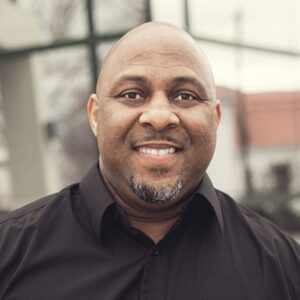
Zenger: Athletes work out and do drills and things like that to remain in their zone so to speak. Is there anything in particular that you do to keep your edge aside from virtually meeting with other actors?
Faucette: Yeah! See, the new thing now is self-tapes. So, you have to set up your own studio, get your camera, your lighting and do your audition with someone reading with you at home. And then submit it to the casting director. With something like that, you really gotta get that technique down, so you look good. And then you gotta practice doing it. Your eye line. Me and my son … there’s this new thing where people say, 28 self-tapes in 28 days. And then you get a scene and go in your studio. Have someone learn the scene, go in there and shoot and see how it looks. Do that every day for 28 days just so you stay on point with the auditions. It’s kind of like a workout.
Zenger: And in terms of staying ready, I’m sure you have to remain physically fit as well.
Faucette: Yeah! I gotta stay in shape. Now, with the gyms closed, it’s tough. Yesterday, I went to the park and ran. I got some weights in my backyard, so I work out. Do a little chest, shoulders, and tris, or leg, back and bi day. I gotta stay in shape.
Zenger: Is acting the sole reason you went from Jersey to California?
Faucette: Actually, I went to pursue something else, a girl from college. My girlfriend in college was from Oakland. I was in school in Boston, so once I graduated, I did an internship in Boston for physical therapy and then I packed the bags to move to San Francisco to pursue this girl. So, that’s how I got to California.
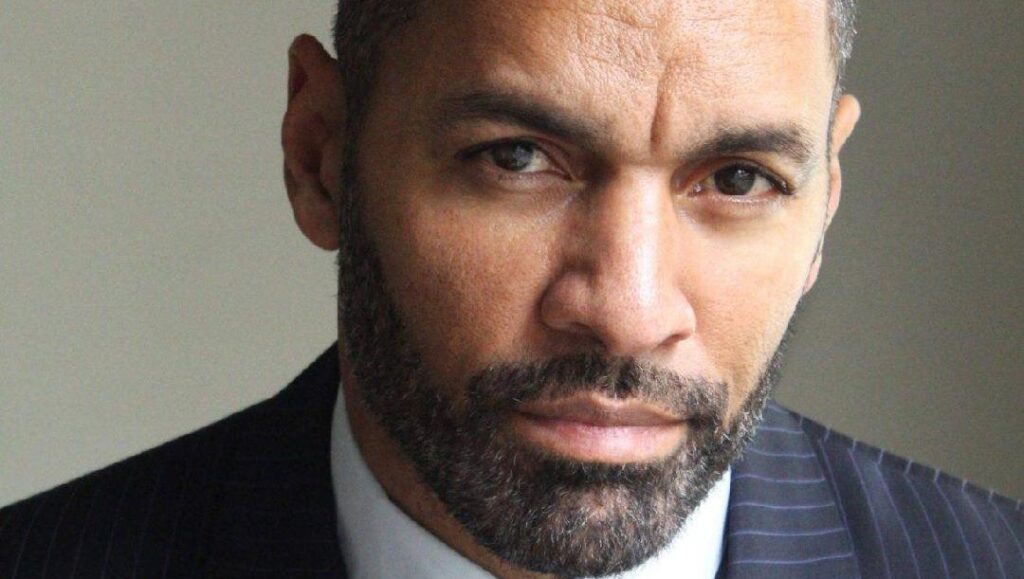
Zenger: I’m always amazed by how many entertainers tell me they had no intention of becoming an entertainer, and it just kind of happened. Was that the case for you as well? Did acting just kind of happen?
Faucette: I was always kind of interested … well, I’m a musician. I play the bass guitar; my mom is a musician. So, I was always into entertainment and such. And I did a little modeling. As a kid I was interested in doing a little modeling. When I was in college, I tried to do a little bit, but I mean nothing serious. I wasn’t seriously pursuing it at all. But when I moved to San Francisco, I moved in with some roommates that were from Boston University who were in acting school. So, they were doing plays in San Francisco, and they are the ones that got me into it. They dragged me into one of their plays when they needed someone to fill in for somebody. And I ended up doing the play and started doing plays in San Francisco, got an agent, started taking acting classes and kind of got bit by the bug.
Zenger: You landed the role of Tony Watson on “The Haves and the Have Nots”. Tyler Perry seems to have his hands on everything. What was it like to be a part of anything Tyler Perry-related?
Faucette: That was pretty amazing, because just to be around Tyler Perry is like a master class in hard work. Like you said, he’s got his hands on everything, and I don’t know how he does it. This dude is the first person on the set; he’s directing; he’s like a commander-in-chief. He knows exactly what he wants from the camera angles, where he wants you blocking. You just gotta come in on your A game — knowing all your lines — and he puts the pieces in place exactly where he wants them. So, it’s amazing to see. It’s like, “Damn, I gotta step up my game because he is on point.”
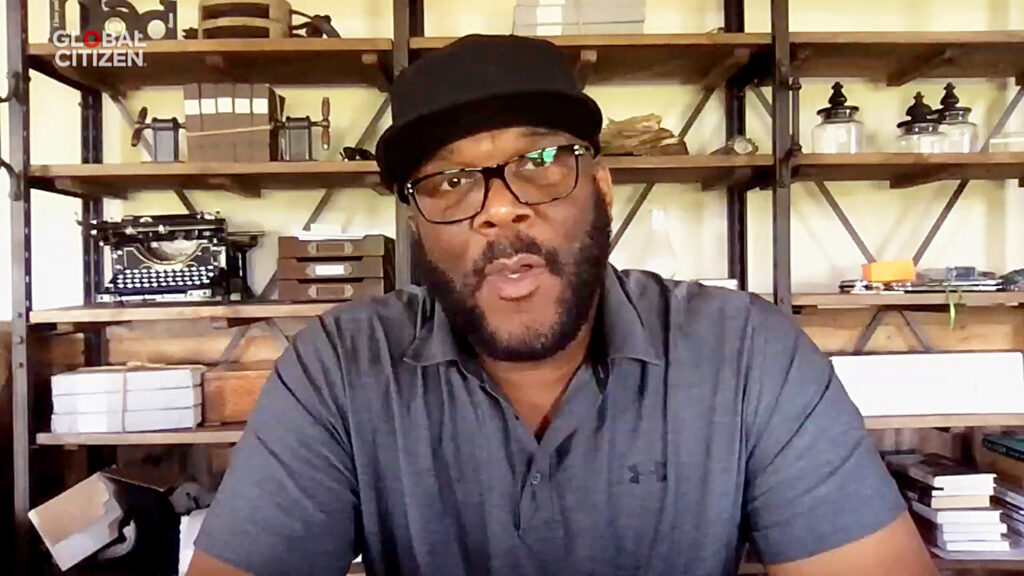
Zenger: Anytime you’re in the presence of someone like Tyler Perry with the intent to impress him, you can either use it as fuel and prosper, or add pressure on yourself and completely tank. Did you feel the pressure or use it as fuel?
Faucette: For me it was the fuel, because I was not going to get on a set with that brother without knowing my stuff forward and backwards. And I have seen people that came on there nervous and couldn’t remember their lines. Tika Sumpter was the star of the show. We finished shooting one episode, and the beginning of the next episode was kind of a continuation of the same scene. So, he is like, “Since we’re done early, why don’t we just go on into the next scene?” Well, Tika was like, “I didn’t know we were going to do that. I didn’t really look at it.” And Tyler was like, “Come on. It’s the same scene; it’s just a continuation.” He’s like, “I know Faucette knows his lines; don’t you, Faucette?” I was like, “You know I do.” For me it was fuel to be on point. To be the best I can be, because that was the example right there.
Zenger: I read where you talked about the role of Tony Watson and you said you enjoyed it because of the period of time that you were in that role. It allowed you to really become Tony Watson. Could you elaborate on that?
Faucette: When you get a chance to really get deep into the character, it allows you to take that whole journey. Like what motivates him, and then transform along with the script. So, when I first became him, I had no idea that I was really going to be the bad guy. I was a guy coming in that first season to be like a love interest. And then after my first day, it kind of flipped; I became Benny’s dad. So, that was a beautiful thing because that solidified my spot on the show, which is a whole ‘nother story, which is pretty exciting. And then once I got the scripts for the second season, I flipped the scripts open, and boom, I’m trying to get his kidney, so then there is a whole ‘nother transformation of this character, taking him to another level. So, you get to really grow with the character, transform with the character. Bring your whole story, the whole art of your character, which is what actors dream of.
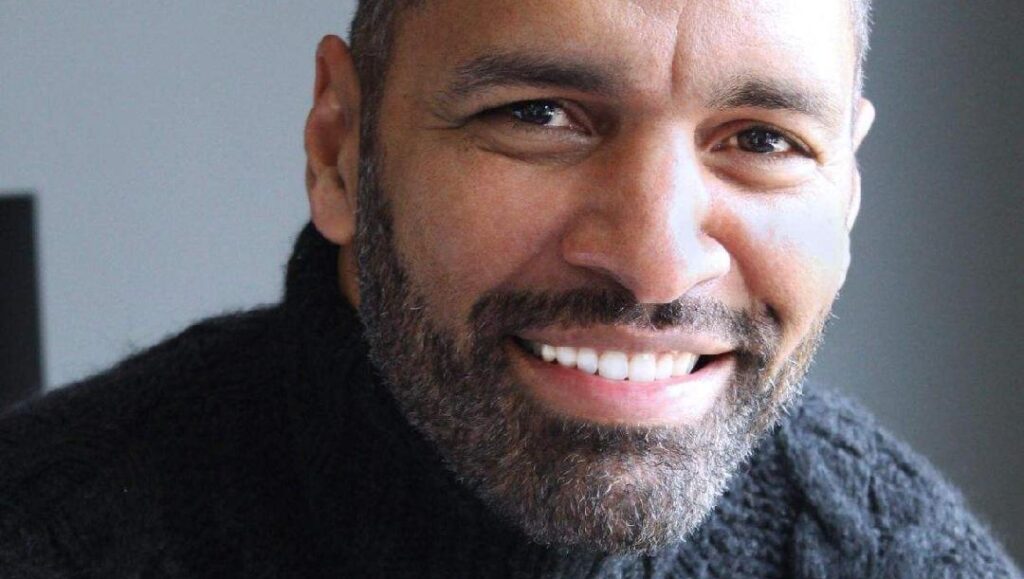
Zenger: When you think of a movie or show set and a bunch of actors being in one setting, you usually think it’s an ego-driven set, egos taking center stage. But you’re all about passing on knowledge to other actors and the comradery of all actors sticking together and helping one another. Why is that so important to you?
Faucette: I think it’s real important. You want to motivate people, especially people of color to stay in the game, keep moving, keep producing and bringing their own brand of acting. And just try to stay in it, because the longer you stay in the game, the more successful you’ll become. I’m the kind of person where I want success for all my friends and acquaintances. I want everybody to be successful and keep moving forward. It’s not like a competition. We’re all in this as actors and artists together. I’m in that school of let’s all move up.
Zenger: Has COVID enhanced that thought process because there are so many things not moving right now and so many occupations that are dormant right now?
Faucette: I got a tight little group of actors that … before COVID we met every single week and sometimes even twice a week. Did scenes together, worked on auditions together, shot stuff, wrote stuff, and COVID hit, and it actually put a little damper in that because everybody was scared to meet up. And then we started Zooming, which is not really the same. But it kept us together and doing stuff. … I got the vaccine so that’s a good thing. So, we still see each other and do self-tapes, and shoot and talk about the business. But COVID’s hurt everything. Even the comradery because you really can’t get together. But the one thing it did do is, it makes you want to reach out to people more. I call people, talk to them, text them, “Hey, what’s up? How ya been? Thinking about you.” So, I do that a lot more now than I did in the past.
Zenger: Do you still find time for some of your musical interests, or has that been put on the backburner?
Faucette: I kind of put it on the backburner. Although, when I first started my acting here in L.A. … I play bass guitar, so I did a movie called “Walk Hard: The Dewey Cox Story”, where I played the standup bass in the band in the movie. So, that was one of those rare chances that I got to mix the acting with my musician side. My neighbor is a drummer, so we used to get together, have a couple of drinks and play some music. Me on the bass, he plays the piano and the drums, and we would kind of get together and make some music. But since COVID, we really haven’t done anything.
Zenger: What do you have coming up in the near future that we can look forward to?
Faucette: I’ve done a few things. I just shot an episode of “Curb Your Enthusiasm”, an HBO show. They brought that back. I have a nice scene with Larry David, which was exciting. He’s a great comedian. The show is pretty much all improv, which is so interesting. And I did a digital series that I was the lead in called “Forbidden Fruit”. That is going to be hot whenever they get that out. That’s where I play a preacher, I have a past and I have cancer. I have a past that was a little unsavory. And that past is coming back. … Well, I’m kind of going back to get that past to pay for my cancer treatment. It’s a trip. It’s about nine short digital series episodes; that’s going to be really hot.
Zenger: To play all these different roles, is there a certain ritual or thing that you tap into?
Faucette: All of these crazy personalities, right? It’s different for each character. For Tony Watson, I had to find that justification. Why is he so intent on pulling the plug on his son? That’s so cold-hearted. For him, he had a justification in his own mind and his own body. For the preacher, it all depends on the script — depending upon my reasoning for going back into my shady life. How can I still bring the word to people if I die of cancer? I had to find a way to pay for my cancer treatment, which may involve me going back into my shady past, so that I can still preach the word and make the world a better place. This is his own justification. It’s different for each character. You kind of delve into it and find your own motivation and your own purpose and filter it through yourself. ‘Cause we all have our own experiences, bad or good, and our own thought process that might not be normal. Most people have some crazy thoughts in their head, and this is where you can kind of expand on those things that are already in you and filter this character through that.
(Edited by Stan Chrapowicki and Alex Patrick)
The post Tyler Perry On ‘The Haves And The Have Nots’ Inspired Patrick Faucette’s A-Game appeared first on Zenger News.
We Publish News 24/7. Don’t Miss A Story. Click HERE to SUBSCRIBE to Our Newsletter Now!
